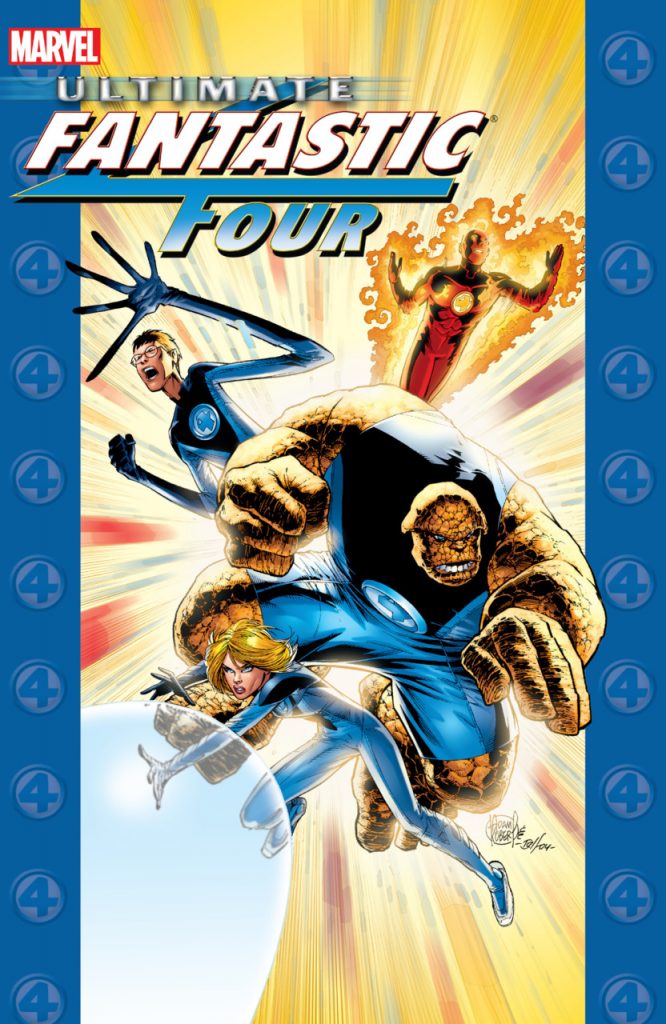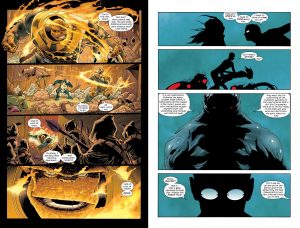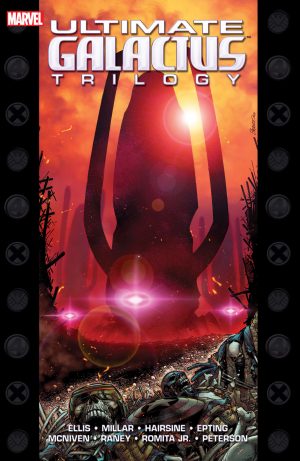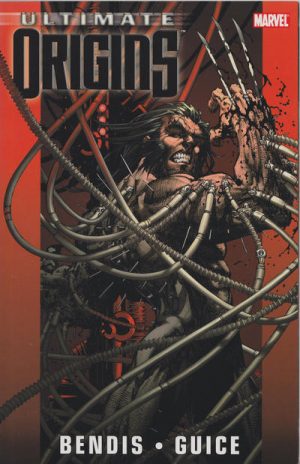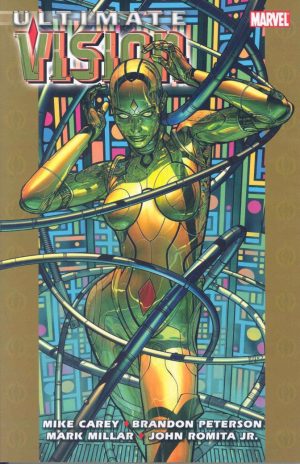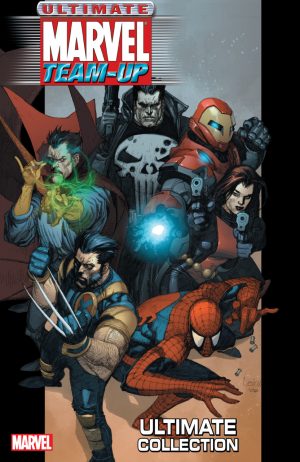Review by Frank Plowright
Three writers contribute a story each to this hardcover collection, with the longest being Warren Ellis’ ‘N-Zone’, which continues directly from the material presented in Ultimate Fantastic Four Volume 1.
That ended with Reed Richards unable to prise some data from Victor Van Damme. Reed remains confident he can reverse the transformative effects of a first visit to the N-Zone, most importantly restoring Ben Grimm’s humanity, but without the necessary information the task is much harder. It seems a deliberate exercise on Ellis’ part to start the six chapters as slowly as possible, while gradually accelerating the plot until the final chapters are maximum velocity. It’s clever, but the nuts and bolts of funding the second trip into the N-Zone aren’t exactly gripping. Once there, though, Ellis introduces a new version of an old foe, and seeing what the Thing can do without restrictions is a real thrill.
It’s partly because Adam Kubert is so efficient when it comes to laying out the story for maximum visual excitement. He surely does his bit to make the opening chapters look more interesting, and action is his strongpoint.
Jae Lee on the remaining two stories is a complete contrast. He’s a far more static artist, but his individual images are imposing, and deal in concealment. He draws people in shadow more often than not, or in silhouette, and the machinery over his first story is constantly alien. That applies even more to his redesign of the Inhumans in the second story, now more than living up to their name, looking creepy and threatening.
Unfortunately Mark Millar’s accompanying story sticks very much to the beats of the 1960s Stan Lee and Jack Kirby introduction of the Inhumans, with only the ending differentiating it to any great degree. It’s disappointing for a writer whose high concept ideas are his stock in trade, and better is in store when he writes all of Volume 3.
Mike Carey picks up Ultimate Fantastic Four from Vol. 4 in these hardbacks, and his trial run concerns a student rejected for the genius project run from the Baxter Building who returns several years later to take over the unit. The rejection was due to her being assessed as psychologically unsound, and that she certainly is during what’s more a horror story than a superhero outing. Carey’s plausible about geniuses at work, conceives an interesting threat and solution, and it’s nice to see an Ultimate Fantastic Four story packing the action into just two chapters.
